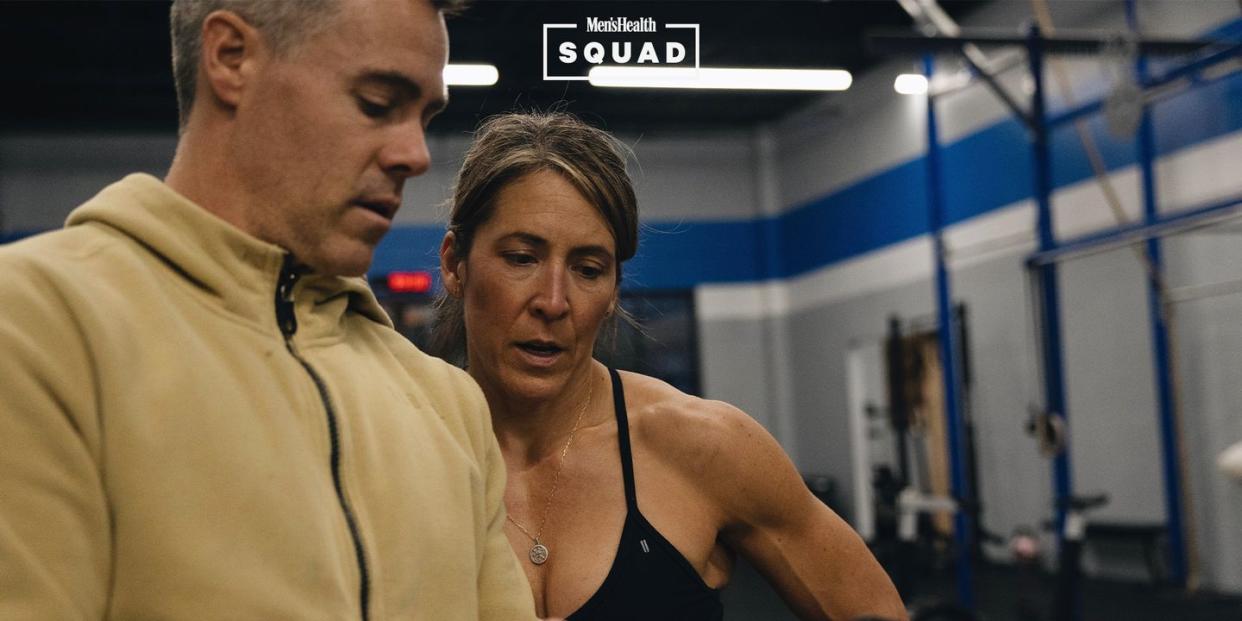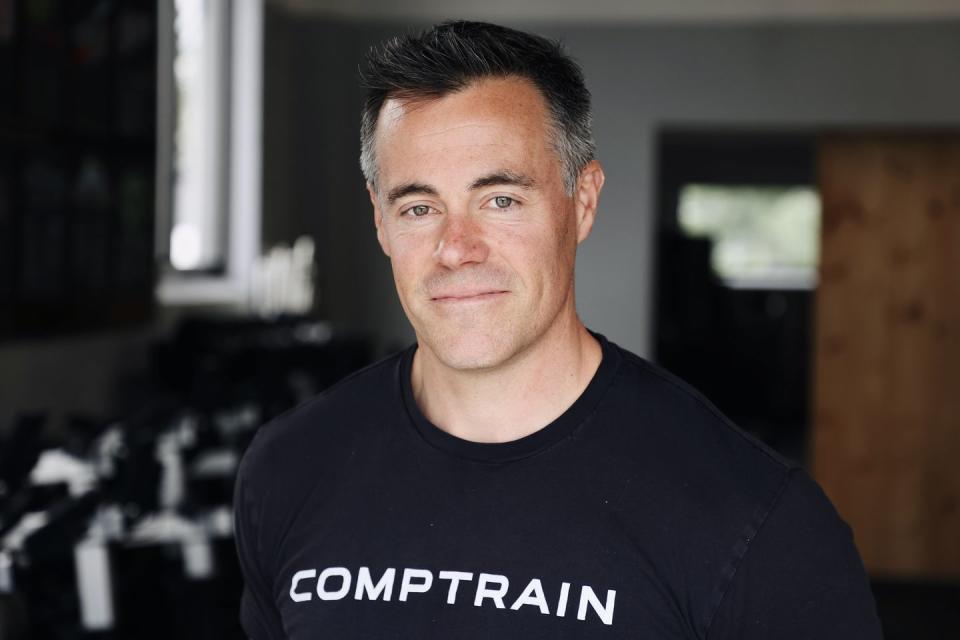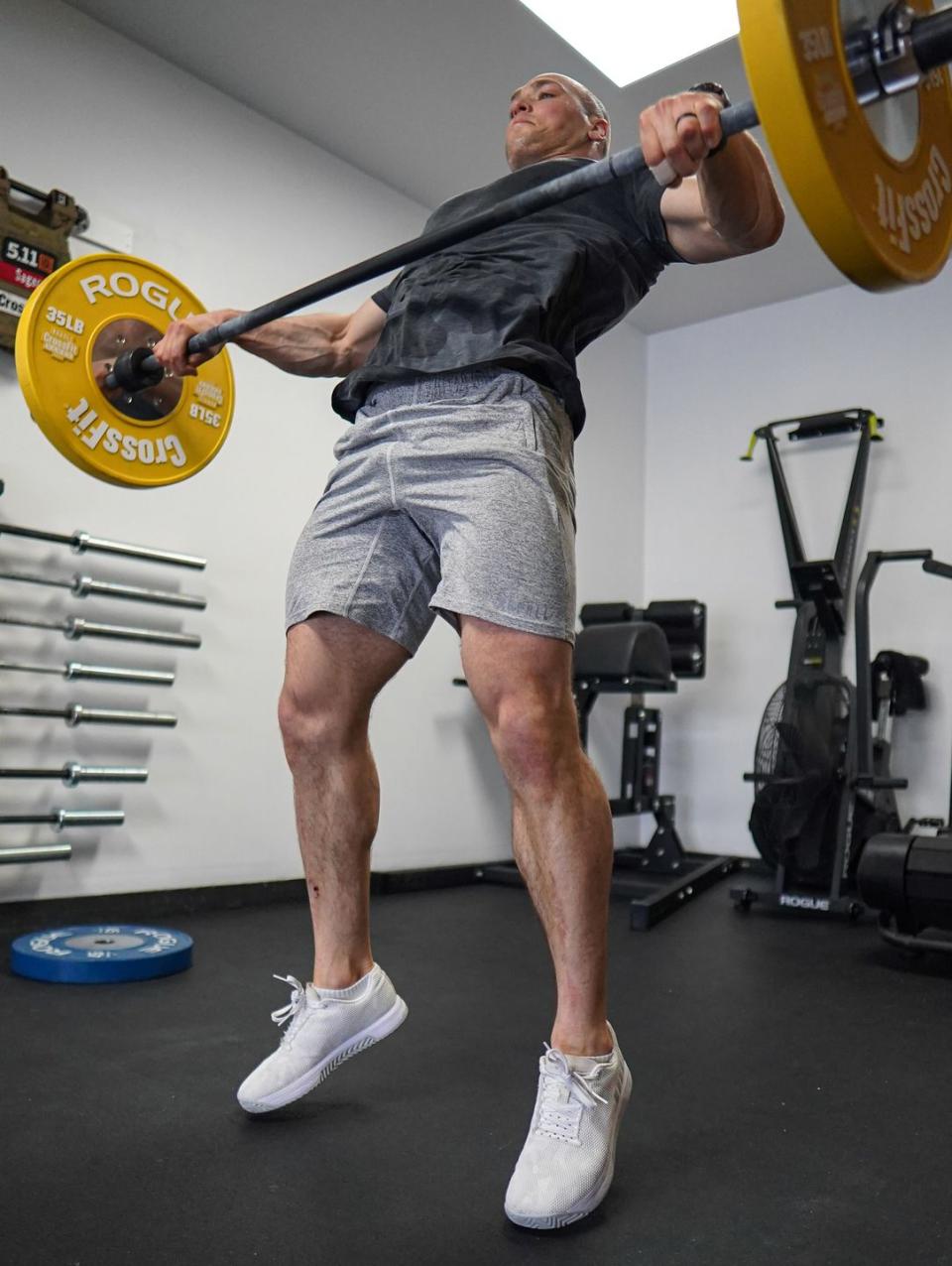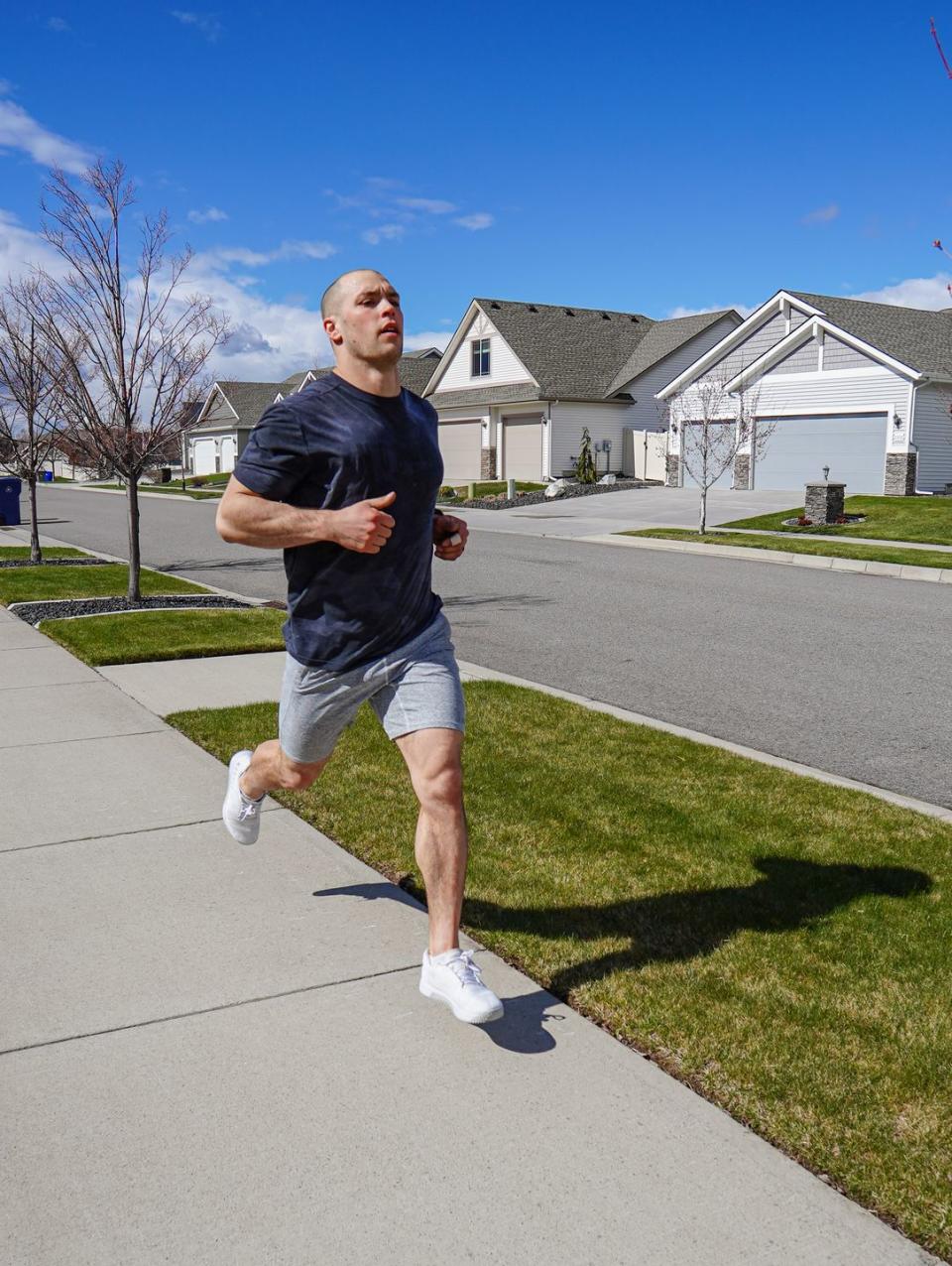Team Talk: Ben Bergeron, Founder of CompTrain, on Making Everyday Athletes Elite

CompTrain is a global training and coaching company, founded and run by arguably the most successful CrossFit coach ever, Ben Bergeron. He is retiring from coaching CrossFit Games athletes to bring the lessons he’s learned along the way to anyone looking to become more physically and mentally capable. Which is all of us, really, isn't it?
The new CompTrain App is the most comprehensive and transformative mental and physical training program they've created yet. Bringing together the trusted CompTrain workout programming to a global community of people united by their unwavering love of fitness, the app also includes access to expert coaching and provides daily mindset development.
I spoke with Ben to find out what he looks for in elite performers, why being coachable is more powerful than being talented and how he is applying his high-level experience to everyday athletes. As you will become aware upon reading, chatting with him is like an interactive podcast. Listen up.

Men’s Health: You’ve been hands-on with so many top CrossFit athletes. Is there anything that you look for before working with someone?
Ben Bergeron: The ‘Ben Bergeron’ thing to say would be ‘they have to have the right mindset…’. But it's actually not that because I believe mindset can be taught. The closer answer is far less exciting: they’ve got to be fit, strong and skilled. Basically, they just have to be good at this thing. Now, all of that can be taught as well. So, the real thing that I look for, when I'm considering working with an athlete, first and foremost, is where they are right now in their journey. If somebody is young, if they're 18 to 21, say, there can be a gap between where they are and where they want to be. But if somebody is mid-to-late twenties, or even older, they have to already be pretty close, right? They have to be really fit already. It’s more exciting to work with someone at the younger end, as you have such a great runway.
The next thing, which might be kind of weird, is their stats – their actual height and body proportions. In our sport, there is a sweet spot in terms of height and it’s a big advantage versus somebody who has long arms and is a little bit taller. You can’t be too short because then you're going to struggle with rowing, rope climbs, wall balls and moving objects. It’s no different to any other sport. If we were looking for somebody to be an Olympic rower, we’re after somebody who is 6ft 2in to 6ft 5in. You can be 5ft 11in but it’s going to be harder.
For somebody aiming to win the CrossFit Games, you need to have a good understanding of where the competitive field is in terms of certain benchmarks. If you're a guy and you can't clean and jerk 335lb you're going to have a really hard time. If you're on the big stage and you can't do 20 unbroken muscle ups, you’re going to have a really hard time. If you can't run under a six-minute mile, you're going to have a really, really hard time. Once you have those things, though, can you put it together? In our sport as with any other, it's about how well you can deal with the hardship and the adversity. How well can you cope with the unknown? How well can you handle challenges? How mentally tough are you?
MH: Mental toughness is a term that is bandied around a lot. What does it actually mean, in your opinion?
BB: People commonly misinterpret mental toughness for physical toughness. Physical toughness is competing despite injury. I was at a playoff game for an NHL Team last night and the guy I was with was telling me about something that happened in a game last week. A player got a skate across the eye, had 74 stitches, put on a mask on and went back in the game. He's got 74 stitches across his face, only missed one or two shifts and continued to play the rest of the game. Amazing! But let's call it what it is. That's physical toughness. That's the ability to withstand pain. That's different to mental toughness.
Mental toughness is the ability to not get distracted. That's what it is. It's staying focused. When athletes are presented with circumstances different than their expectations, they get distracted. If they thought that they were going to be in the top 10 of the CrossFit Games after the first day and they’re in 22nd place, what starts going through their head? They start storytelling and they are unable to give their best performance. When a judge starts giving you no-reps in the middle of an event do you get distracted from your performance and start focusing on something that's not your best effort?
It's as simple as that. It's the ability to stay focused and it's no different for an elite athlete than it is for us. We get distracted all the time - by emails, your kids or the growing to-do list and we’re unable to focus on the deep, meaningful work. That's a lack of mental toughness. The thing that distracts us the most, from elite athletes to the people trying to crack on with their professional careers, is the narrative in our heads. That is the biggest distraction we all face. We have two selves, two voices in our head. One which is very in line with our long-term goals, like winning the CrossFit Games or earning enough to care for our family. The other one, the naysayer, tries to tell you you're not good enough. It’s the one that gives into temptation, the one that wants to hit the snooze alarm or won't do the last interval in the gym.
It's the battle between those two voices that determines how mentally tough you are. I call them the internal coach and the internal critic. Do you have a coach in your head? Or do you have a critic? the job of the coach is to make you better and keep you on task. That's what coaches do. Let's get focused. Let's get back to the task we got away from and do what we do best. Let's get back to this thing. This is why we're here. Whereas a critic just sits on the sidelines and points out everything that the doer of deeds is doing wrong. We have both those voices. It all comes down to which one is louder and which one we choose to listen to.
MH: How much of coaching is really about the person being coachable?
BB: I actually think that is the number one trait. You can call it growth mindset or humility, or you can call it curiosity. Whatever you want to call it, it's this idea of wanting to get better. A fixed mindset is, trying to pass the test and being here to prove how good you are To prove that you’re better than other people. It’s much harder to coach somebody with that fixed mindset but you can do it. It’s all about reframing the way they think about things.
Say the workout on a given day includes 800 metre runs and the person isn’t into it because they think they suck at running. Let's just change that. It’s not that you suck at running, it’s that you're not good at running yet. Changing the narrative and making it something they are working on, rather it simply being about where you are today. It's amazing when you have an athlete that is like Katrin [Davíðsdóttir]. Katrin’s favourite thing, even more than competing, was getting coached. That’s so rewarding for everyone involved.
MH: With CompTrain and yourself, there has always been a through-line of mindset. Why is that such a focus for you?
BB: I appreciate that question and I’m glad that there's a perceptible through-line. First and foremost, I'm a performance coach and my job is to help people to perform as well as they can. The mental side matters as it will improve your performance. I’ve seen so many talented athletes that don’t have the mental fortitude or discipline and they fail to reach their potential. I believe in creating a transformational programme, as opposed to just a transactional one. A transactional programme is one that just gets you better at said task. Whereas a transformational coach or programme makes you a better person and a better teammate. You know how to deal with adversity, you can overcome challenges, you know how to communicate, you know how to commit to a goal and so on.
That's why I believe that better people make better athletes and better athletes make better people. I don’t just want make people fitter, faster and stronger. I want to make them able to handle hard things better. I want people to be able to run up flights of stairs and scale mountains and lift heavy things and move their body, sure. But I also want people not be rattled when they're faced with challenges. It seems to me, as a performance coach, it'd be irresponsible for me to leave that out.

MH: When you’ve spoken about CompTrain 3.0 and its refreshed direction, you have talked about building a tribe of world's fittest and most resilient people. What do you mean by that?
BB: To be your most ready. That’s a big concept but there are three constituent parts that are much easier to grasp. Firstly, you need to be physically capable. So if David and Ben go walking in the woods and a boulder falls on my leg, David needs to be able to pick up the boulder. If he can't, then you're not at your most ready. There's a gap there. You need to be able to run the three miles out of there in under 21 minutes to get help, or you need to be able to roll that boulder off me and then put me on your back and be able to walk three miles out. Do you have that physical capability?
The next thing is, I need you not to freak out. If you look at my leg and see bone, I need you to be mentally resilient enough not to lose it and be in panic mode. You want to be an asset, not a burden to the situation. That's that mental stuff. How much can you take before you get totally rattled? Now we have two things. You have that physical capability and you have that mental side right? That's awesome for you.
But if you want to be the very best you can be, the most under-appreciated aspect is being part of a community with shared values and beliefs. Everyone becomes more formidable when they are part of a community. It’s hard-wired into us as humans. I believe that in order to fully create the most resilient humans, they need to be a part of a tribe going through the same daily challenges. Until this new era of CompTrain, we haven't done much more than put out workouts. We would do maybe two training camps a year. With the new platform, CompTrain 3.0, community is at the forefront. It’s a place where people can see each other and can share things. They can create friendships, they can create little groups inside of the bigger community. You know who the people are, you know their performance levels, you know how many days they've been on the programme. You can communicate on message boards. It's a true tribe. It’s digital, sure, but a lot of these people are training on their own. The majority of our users are not training in CrossFit gyms. If you're this lone wolf, you're the guy out in the woods, we're asking you to come back to the tribe and have other people around you.
I had the honour and the privilege of working with the fittest people on planet Earth, which is so crazy. I've learned so much in those last 20 years and particularly last 15 working with CrossFit Games athletes. I usually worked with about four athletes, two guys and two girls every year. I always want to have the most impact I possibly can. At that point, it was how can I further human performance and try to test the capabilities of what humans are actually capable of? Now I want to bring those lessons to a bigger population. I want to create a community and a tribe around those lessons I’ve learned. I'm excited for this next phase of doing this on a wider scale; of opening up those lessons to anyone that wants to be a part of it.
MH: Has your approach to programming had to change for that wider population?
BB: I look at it is like this: if I have the opportunity to work with David just once, I want that one training session be as impactful as possible. Now, if I have him for five days, that's even better. But the first thing is, we need that one training session to create the best possible adaptation that we can. And the way we do that is twofold. The first one is that programming should be concurrent, meaning we're going to try to lift up all areas of David's performance at the same time. I'm not going to focus on strength and then, in three months, we're going to work on some skills. We're going to be greedy. We're going to go for everything today. If fitness is work capacity across broad time and modal domains, we want to be bringing that up at all times. We're going to work on your strength. We're going to work on your top-end fitness, we're going work on your endurance and we're going do it all today.
We’re going to take a horsepower-biased approach, meaning we want to you to get as much work out of your training as possible. The way we do that is by working on really big, functional movements. Is there a place for bicep curls? Sure, but we want to bias the programming towards using more muscles in the workout. From there, what I need to know about David, before I even need to know your goals, is how much time do I have to work with you today? Are you with me for 30 minutes, or have you got three hours? If it’s 30 minutes, I'll have you do a potent metcon, maybe lift something as well. But if you're going give me three hours, it will look very different.

MH: The Men’s Health reader is certainly wants to look good, feel good and perform well as part of their busy lives…
BB: I love that! That they want to feel good, perform good and look good. So, here's what happens when you take these big movements, like clean and jerks, and pull ups and running. Now you have have big movements, you have a weightlifting aspect, you have a cardio, and you have a bodyweight move, all that are complimentary and not affecting the other. Because I can run and that doesn't slow me down on pull-ups. Then I can do pull ups and that doesn't mess me up with my clean jerks. That's a really powerful combination. When you take those big movements that are complimentary, put them together, and we do them for time, you create crazy amounts of horsepower. When you create crazy amounts of horsepower, you create fitness. When you create fitness, you create function, and form always follows. It's why CrossFit athletes look like the way they do. If you want to look better focus on the function. If you focus on the function, the form falls into place.
MH: Would you say the final piece of this puzzle is confidence?
BB: Yeah, I love that. It’s not just a soft, ephemeral feeling. There's a reason you and I feel like we have more confidence when we’re fitter. You feel like you can accomplish things. If you are physically more capable, that brings a high level of confidence. If you're mentally less shakable, things in the future are not going to rattle you as much. That brings a lot of confidence and feel great. And if you feel like you're a part of a community, a tribe was shared beliefs, habits, behaviours and rituals, now you have a sense of belonging. That trifecta builds up to this really powerful hormonal response. You get a hit of dopamine from working towards and accomplishing goals. You have the serotonin from being a part of a group. That's why people feel good and experience a huge level of happiness, satisfaction, and confidence. It's not just this weird thing that's happening. There's science behind it. It’s real.
Visit the CompTrain website now to register for access to the free public beta and experience CompTrain3.0
You Might Also Like


